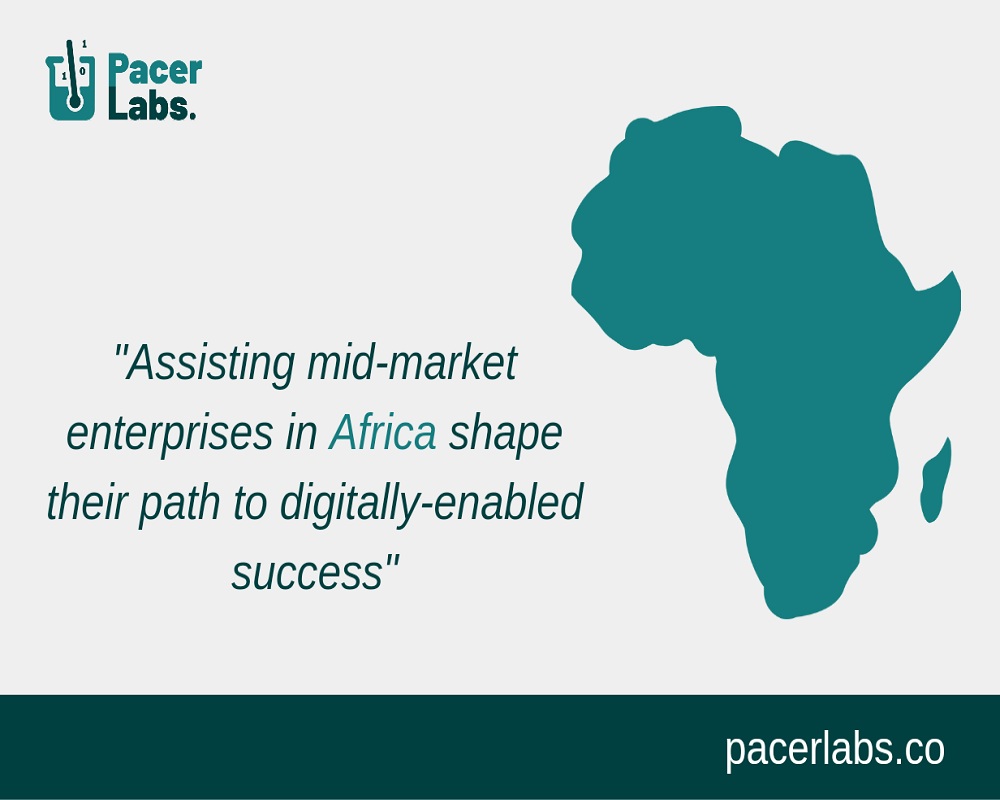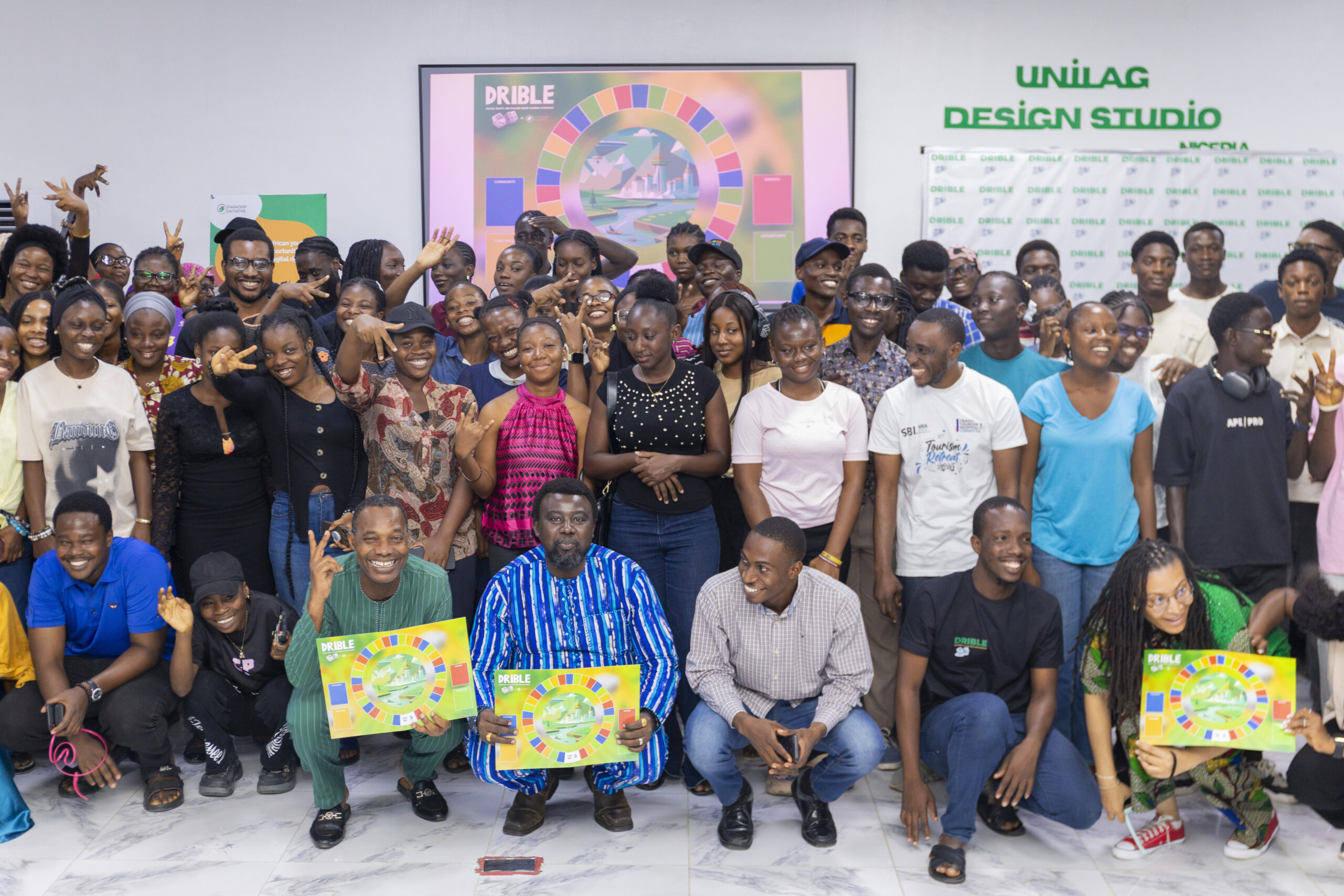Telecom
Pacer Ventures Launches Pacer Labs to Support Digital Acceleration in Africa

Sub-Saharan Africa venture firm Pacer Ventures is set to further unlock the power of digital transformation in Africa with the launch of Pacer Labs, a software development firm born to support the African digital ecosystem and the growth of forward-looking organisations by harnessing the power of advanced technologies.

Projections indicate that Africa will be the world’s next tech talent center due to the emerging mobile population.
This in turn inspires Pacer Labs’ confidence for the future market in Africa, positioning them at the forefront of the push towards maximising the tech talent of the African economy.
Ray Sharma, chairman, Pacer Labs and Founder, Extreme Venture Partners and XtremeLabs, says “Pacer Labs aims to become Africa’s leading software development firm as measured by sales and employees by 2025, leveraging the success of XtremeLabs and a soon-to-be-announced global partner for the success of Pacer Labs and its customers. Africa has risen. Pacer Labs is set to help deliver efficiency and digital transformation.”
The true acceleration potential of the African continent lies in the rapid spread of mobile digital technology, which will help the region in economic development. Mobile technologies and services generated 9% of GDP in sub-Saharan Africa in 2019, representing $155 billion in economic value-added. This figure will reach $184 billion by 2024.
Gbemi Akande, director, Pacer Labs, speaking on the launch stated: “The creation of Pacer Labs is deeply rooted in the organization’s belief in the African continent. Pacer Ventures and Pacer Labs are positioned in such a way that they will help deepen the development of technology in Africa.”
“Pacer Labs will ensure that the development needs of organizations and governments are met in a timely and cost-effective manner, while soon-to-be-launched Pacer University will be another curated platform by Pacer Ventures to equip startups and executives with the required technology skills,” said Geoffrey Weli-Wosu, General Partner at Pacer Ventures and Co-Founder of VoguePay.
This means that the organization will support in solving some of the most critical problems on the continent while facilitating the development of African enterprises, primarily early-stage startups, mid-market enterprises and large corporates through experience design, product development, engineering and digital transformation.
Chukwuemeka Fred Agbata, regional director of Founder Institute Africa noted, “It is due to the rapid growth of startups in Africa that world-class development companies like Pacer Labs are born, while Founder Institute will ensure that forward-looking startups are given the opportunity to get access to world-class development tools and resources that will aid their continuous growth.”
The end-to-end solutions provided by Pacer Labs will help enterprises design, build and scale solutions that drive customer satisfaction, streamline operations and gain a competitive edge on both existing products or a new application.
The Lab intends to partner with clients to tackle the toughest challenges and bring ideas to life.
Telecom
MTN’s ₦31.75Bn Investment in Health Lauded at Arthur Mbanefo Lecture

MTN Foundation has been spotlighted as a model for private sector-driven healthcare development in Nigeria, following commendations at the 6th Arthur Mbanefo Lecture held at the University of Lagos, Akoka.

Themed “A Healthy Nation is a Wealthy Nation: The Role of Impact Investments and Sustainable Financing in Nigeria,” the lecture featured Dr. Tolulope Adewole, Managing Director of NSIA Advanced Medical Services Limited (MedServe), as keynote speaker.
Dr. Adewole praised the Foundation’s strategic investments, noting that MTN commits 1% of its profit after tax annually to development sectors. “They’ve invested ₦31.75 billion, reaching over 32 million Nigerians. Though only 25% went to health, it accounted for 51% of all lives impacted. That’s catalytic,” he said.
He cited MTN’s dialysis centre programme as a transformative intervention for patients with kidney disease, and highlighted community-focused initiatives like the Y’ello Doctor mobile scheme and ‘What Can We Do Together’ (WCWDT) programme, which revitalised 164 Primary Healthcare Centres, including 44 in 2024 alone.
Executive Director of MTN Foundation, Odunayo Sanya, reflected on the COVID-19 pandemic’s exposure of systemic health vulnerabilities. “When COVID hit, we realised a health emergency is also an economic and social emergency,” she said.
Sanya revealed that of the 52 PHCs remodeled in 2024, only one had clean water. “I’m not a doctor, but I know you can’t live a good life without clean water,” she added, reaffirming the Foundation’s commitment to bridging healthcare gaps in underserved communities.
Telecom
PIN to Empower 20 Million Youths with New Digital Rights Board Game

Hundreds of university students across Africa are set to benefit from a new gamified learning experience on digital rights and inclusion launched by the leading pan-African non-profit organisation, Paradigm Initiative (PIN).

The Digital Rights and Inclusion Board Learning Experience (DRIBLE) is a game developed by Paradigm Initiative with support from the Open Society Foundations (OSF). The custom-designed board game provides young individuals with a fun and engaging entry point into digital rights and inclusion conversations, training sessions and storytelling tools.
The board game aims to build digital literacy, deepen understanding of online safety, and introduce young individuals to the organisation’s tools of impact. Currently being piloted in three universities: University of Lagos, Nigeria, the Catholic University of Eastern Africa (CUEA) in Nairobi, Kenya and the Dakar American University of Science and Technology (DAUST) in Dakar, Senegal, it will enhance interactions and create a holistic experience.
Speaking at the event launch at the University of Lagos, Nigeria, ‘Gbenga Sesan, Paradigm Initiative’s Executive Director, said: “PIN’s vision is to reach 20 million people through our Digital Inclusion and Digital Rights interventions. From Lagos, to Dakar, to Nairobi.. we will use the vehicle of our new Digital Rights and Inclusion Board Learning Experience (DRIBLE) which entails using gamification, training, multimedia materials, tools and other interventions to connect African youth with digital opportunities and protect their digital rights.”
‘Gbenga gave the keynote address on “Digital inclusion at PIN, our Past, Present and Future” and Nnenna Paul-Ugochukwu, the organisation’s Chief Operating Officer, said the goal of the learning experience would be instrumental in raising awareness of digital rights among the youth, building their capacity to address digital rights and inclusion issues in their communities. Prof. Olunifesi Adekunle Suraj shared a goodwill message with the students and other stakeholders.
Paradigm Initiative, which has been operational since 2007, started in a tiny cybercafe in Ajegunle, Lagos, Nigeria. Today, the organisation has expanded its wings to cover six African countries; Cameroon, Kenya, Nigeria, Senegal, Zambia and Zimbabwe, impacting the livelihoods of over 150,000 young Africans.
The launch of DRIBLE builds on the progress the organisation has made over the years in tackling the challenge of digital exclusion across Africa.
Paradigm Initiative’s tools of impact include Ripoti, a platform that enables individuals to report digital rights violations, Ayeta, a platform that provides digital security resources for stakeholders, more so human rights activists, defenders, journalists and other vulnerable groups, and the organisation’s latest short film, Whispers in the Wires.
Targeted at students, PIN rolled out a Campus Tour in the three universities on the continent starting July 15th, 2025.
Telecom
Meta Cracks Down on Fake Accounts, Deletes 10m Profiles

Meta, the parent company of Facebook, has intensified its crackdown on fake accounts and spam, announcing it removed over 10 million fake profiles and roughly 500,000 spam accounts in the first half of 2025.

The sweeping purge is part of Meta’s broader effort to combat impersonation, fake engagement, and content duplication, aiming to elevate authentic creators and improve the quality of content across its platforms.
In a blog post, Meta said: “We’re making progress. In the first half of 2025, we took action on around 500,000 accounts engaged in spammy behaviour or fake engagement. We also removed about 10 million profiles impersonating large content producers.”
Meta stressed that accounts which primarily repost or recycle content without meaningful edits will face penalties such as reduced reach and the loss of monetisation tools.
The company also warned that repeatedly sharing unoriginal content — whether videos, photos, or text — undermines the platform’s integrity by crowding out genuine voices and making it harder for new creators to grow.
To support authentic creators, Meta is rolling out new tools that automatically trace reposted content back to its original source. The company says this will help ensure rightful credit and give higher visibility to original posts.
“Pages and profiles that post mostly original content tend to enjoy wider distribution across Facebook. Simply stitching clips together or adding a watermark will no longer count as meaningful editing. Content that provides real value and tells an authentic story is likely to perform better,” Meta explained.
Creators are also being cautioned against uploading content that includes watermarks from other platforms. Such posts could see their reach restricted or lose monetisation privileges altogether.
As part of its latest update, Meta introduced post-level insights on the Professional Dashboard, allowing creators to monitor how individual posts perform. They can also check their Support Home screen to see if their content or earnings are facing restrictions.
In a parallel development, Google’s YouTube updated its monetisation guidelines, stating that content deemed mass-produced or excessively repetitive will no longer qualify for ad revenue. The announcement initially sparked concern among creators, who feared it was a blanket ban on AI-generated content. YouTube later clarified:
“We welcome creators using AI tools to enhance their storytelling, and channels that use AI in their content remain eligible to monetise.”
Both tech giants say these new policies are aimed at raising content standards and safeguarding genuine creators in a crowded and rapidly evolving digital landscape.

 Telecom3 days ago
Telecom3 days agoNCC Introduces N10m Licence Fee for Bulk SMS Service

 Telecom3 days ago
Telecom3 days agoMTN Nigeria Targets $1Bn Cloud Market with Largest Modular Data Centre

 General News3 days ago
General News3 days agoWoodhall Capital and Partners Launch ₦1.5Bn Fund

 E-Business3 days ago
E-Business3 days agoFirm Highlights Top Risks of Quantum Computing

 E-Financial2 days ago
E-Financial2 days agoZenith Banks Leads as 8 Banks Suffer N156Bn Impairment Charges

 Telecom3 days ago
Telecom3 days agoPAT Taps Osi as CEO

 General News3 days ago
General News3 days agoBurna Boy Distances Himself from Meme Coin, Labels Crypto as Fraud

 E-Financial3 days ago
E-Financial3 days agoAfrica Launches PAPSSCARD, First Pan-African Card Scheme


























